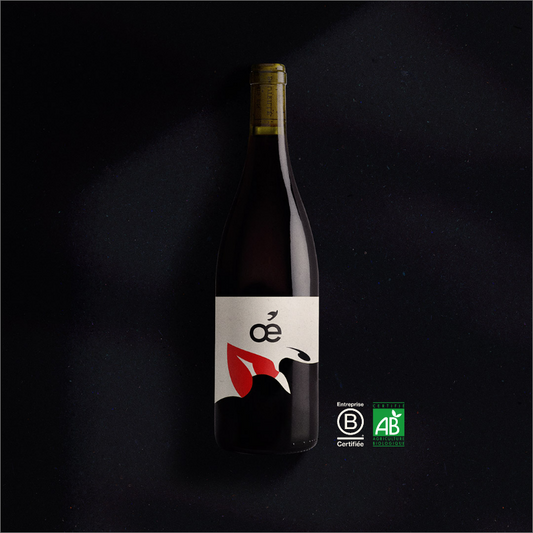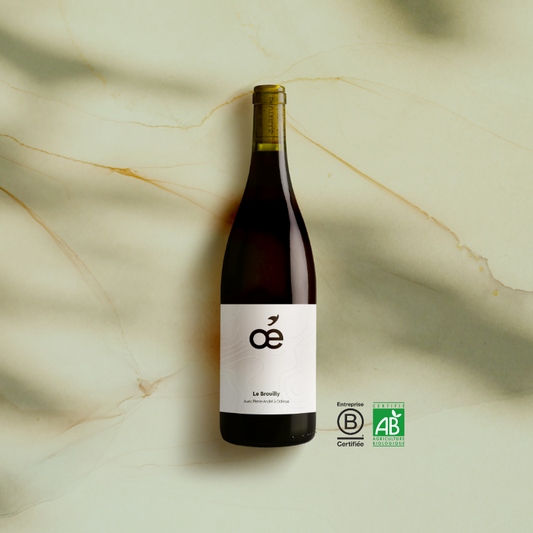Our mission is to bring about transformation by making agriculture, consumerism and business a force for good. It’s one we embrace with all our heart.
We’ve already written about transforming agriculture to have a positive impact, now let’s look at the second point in our mission statement.
How can we consume while making a positive impact? It's no small challenge. Luckily, when it comes to changing the world at Oé, we just roll up our sleeves and get to work.
At Oé, how do we define consumerism?
Let’s start simple. How do we define consumption?
According to the most obvious source (a dictionary) consumption is defined as the act of buying and using goods. Non-durable goods can be used before we quickly dispose of them, while durable goods can be transformed.
So there are two main ways we can consume: one ending in disposal and one in transformation (our ultimate goal!).

Consuming responsibly means asking the right questions before buying. At Oé, we like to use the BISOU method.
“Bisou” might mean kiss in French, but we promise we’re not asking you to kiss someone before you go shopping. Instead, think about the meaning of each letter in this word.
B is for “besoin” or need: what need does this purchase meet?
I is for immediate: can I wait a few days to decide?
S for similar: do I already have an object that can perform this function?
O for origin: where does this product come from?
U for useful: is this product essential?
We reckon this kiss might just save the planet and your wallet.
Adopting habits that are more sustainable for the world encompasses more than food. It extends to the choices we make regarding the energy we use, the transport we take, the everyday consumer products we buy, the digital technology we rely on, our banking and more.
Our initiatives at Oé
At Oé, we make considered choices about our consumption.
In terms of energy, we use Enercoop, a French electricity supplier who draws from renewable sources. Enercoop electricity is guaranteed to be 100% renewable thanks to direct supply from more than 350 producers throughout France who use exclusively renewable sources: water, wind, sun and biomass.
In addition to sourcing responsibly, we consume this energy as a rare commodity. We turn off the power every night, we don't over-heat our office, we unplug our devices when they're not in use... many small actions make a big difference over time.
When it comes to transport, we opt for a method that allows us to build muscle, warm up on cold days and take care of our planet. Introducing… the bicycle! Many of us commute to work by bike, regardless of the weather and the distance. It allows us to wake up in the morning, to decompress in the evening, and take a moment for ourselves.
When sourcing our tech equipment, we only ever buy second-hand and refurbished.
Our bank is also a little different from big traditional banks, many of which finance projects that aren’t great for the environment. We’re proud to be able to finance sustainable, responsible initiatives thanks to La Nef. La Nef promotes clean and transparent investments by only financing projects with ecological, social or cultural added value.
Ethical neo-banks such as Hélios and Green Got, both young French banks, also offer total transparency to their customers.


For food, we choose local and seasonal produce. Every week, we receive “non-standard” fruit and vegetable baskets that feature excess produce or items that don’t meet store standards. We limit the purchase of meat, and some of us are plant-based.
The team enjoys Symples drinks with returnable bottles, savory treats from Superproducteur and delicious cream puffs from the local bakery.
At work, and in our personal lives, we opt for short-circuit supply chains.
Why is consumerism included in our mission?
We chose to make consumerism a feature of our mission to help drive practices with a positive impact. Leaving it out would have been far easier; changing consumer habits is a real challenge.
At Oé, we’re particularly passionate about developing the reuse of wine bottles. We’re very proud to be the first wine brand that started to facilitate their return. Being the first is great, but inevitably it’s tough. We hope to make the system more accessible so that reuse becomes possible on a national scale.
Happy as we are to change the status quo, the work needed to put in place all the logistics can also be a headache. To do more long-term, we’re banking on the deposit network being used on a much larger scale and are working to make all companies aware of reuse instead of constantly reproducing. On our team, Mathilde works to bring this dream to life every day.
Sure, glass can be recycled. But recyclable does not necessarily mean recycled. In France, only 85% of glass was recycled in 2020. The remaining 15% was… buried. Nope, we can’t believe it either.
When you make a new bottle, some glass is new. Transparent bottles contain 70% new raw material and green bottles 25%. It’s food for thought. And that’s before you consider the furnaces that run day and night to melt the glass for recycling, with their own impact on the environment.

Reuse is at the heart of our mission at Oé. It's going to require us to change mentalities and production norms. For example, labels should be affixed with a water-soluble glue that allows them to be easily removed with water.
In addition to the ecological advantage, reusing a bottle has recently become economically beneficial. Raw materials are becoming increasingly scarce, largely due to the ongoing conflict in Ukraine. Europe is in a bottle shortage and it’s becoming more and more difficult to find containers.
The solution is to see reuse and return adopted on a large scale. That's what we're working towards every day.
If everyone changes the way they consume, we can repeat this famous sentence from 1969: “it's one small step for man, one giant leap for mankind” 🚀.





